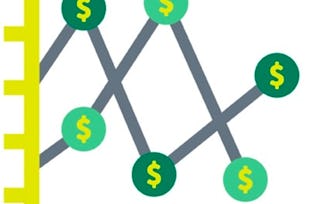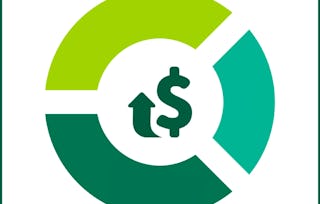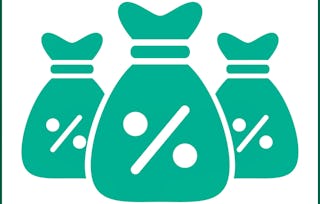In this project-centered course, Darden's Ron Wilcox and BCG's Thomas Kohler will walk you through a real-world case, from problem statement to detailed analyses. You'll use all three lenses (cost, customer value, and competition) to recommend an optimal price—and then adjust to market disruptions. Utilizing the concepts, tools and techniques taught in previous Specialization courses—from basic techniques of economics to knowledge of customer segments, willingness to pay, and customer decision making to analysis of market prices, share, and industry dynamics—you will practice setting profit maximizing prices to improve price realization. You'll finish the course with a portfolio-building project that demonstrates your pricing prowess from this Darden School of Business at the University of Virginia and Boston Consulting Group course.


Gain next-level skills with Coursera Plus for $199 (regularly $399). Save now.


Pricing Strategy in Practice
This course is part of Pricing Strategy Optimization Specialization



Instructors: Jean Manuel Izaret
13,186 already enrolled
Included with
(168 reviews)
Recommended experience
What you'll learn
How to use the three lenses to set an optimal strategic price to maximize revenue
How to approach a pricing case, glean information, and work through a complicated pricing decision
How to utilize tools and data to analyze and recommend a strategic response to a real world pricing situation
Skills you'll gain
Details to know

Add to your LinkedIn profile
See how employees at top companies are mastering in-demand skills

Build your subject-matter expertise
- Learn new concepts from industry experts
- Gain a foundational understanding of a subject or tool
- Develop job-relevant skills with hands-on projects
- Earn a shareable career certificate

There are 4 modules in this course
Welcome to the course! We'll kick off the week with an overview of the project, which centers around Philips introduction of an eco-friendly light bulb. Once you've read the case, Thomas and Ron will guide you as you apply the cost lens to analyze the economics of the LED light bulb Philips has introduced to the market. After you've analyzed the economics of the case, Ron and Thomas will debrief to make sure you are on the right track. You will also hear from BCG pricing experts, who will share their lessons and tips gleaned from years of helping clients in multiple industries optimize their prices and improve the bottom line.
What's included
15 videos5 readings3 assignments3 discussion prompts
This week, we will dig deeper into customer value using conjoint analysis to determine the price sensitivity of consumers and businesses. Thomas and Ron will show you how to graph the conjoint data to easily compare these two markets--and you'll do additional analysis of the conjoint data to learn more about what consumers value. Using your analysis, you'll hone your pricing recommendation.
What's included
8 videos1 reading2 assignments
This week, you will pull everything together to make a pricing recommendation for Philips. You will recommend which markets they should serve (B2B, B2C, or both) and how they should price their LED bulbs. You'll learn how to lay out your thought process and rationale in a tightly edited slide deck that presents your recommendations in a compelling way.
What's included
2 videos1 peer review
This week, you will respond to new developments in the LED light bulb market: a new competitor and new regulations. Just like in real life, you'll need to adjust your strategy when the competitive landscape changes and new regulations emerge and reconsider the retail marketplace and reevaluate the B2B market. You'll also head out into your own "real world" and do some detective work about the LED bulb market in your area and relate those finding to the case. We'll finish the course with BCG pricing experts sharing their insights into what makes pricing such a rewarding field.
What's included
15 videos2 readings1 assignment3 discussion prompts
Earn a career certificate
Add this credential to your LinkedIn profile, resume, or CV. Share it on social media and in your performance review.
Explore more from Marketing
 Status: Free Trial
Status: Free TrialUniversity of Virginia
 Status: Free Trial
Status: Free TrialUniversity of Virginia
 Status: Free Trial
Status: Free TrialUniversity of Virginia
 Status: Free Trial
Status: Free TrialUniversity of Virginia
Why people choose Coursera for their career




Learner reviews
168 reviews
- 5 stars
80.35%
- 4 stars
13.69%
- 3 stars
2.97%
- 2 stars
2.38%
- 1 star
0.59%
Showing 3 of 168
Reviewed on Apr 22, 2020
great course and content. even after almost 10 years in the business environment i was able to learn something new
Reviewed on Mar 5, 2019
Extremely good course. I learned a lot and can apply it instantly to my work
Reviewed on Jun 11, 2017
An excellent specialisation - I enjoyed every minute of it. Good teachers, well thought through material presented with some humour.

Open new doors with Coursera Plus
Unlimited access to 10,000+ world-class courses, hands-on projects, and job-ready certificate programs - all included in your subscription
Advance your career with an online degree
Earn a degree from world-class universities - 100% online
Join over 3,400 global companies that choose Coursera for Business
Upskill your employees to excel in the digital economy
Frequently asked questions
To access the course materials, assignments and to earn a Certificate, you will need to purchase the Certificate experience when you enroll in a course. You can try a Free Trial instead, or apply for Financial Aid. The course may offer 'Full Course, No Certificate' instead. This option lets you see all course materials, submit required assessments, and get a final grade. This also means that you will not be able to purchase a Certificate experience.
When you enroll in the course, you get access to all of the courses in the Specialization, and you earn a certificate when you complete the work. Your electronic Certificate will be added to your Accomplishments page - from there, you can print your Certificate or add it to your LinkedIn profile.
Yes. In select learning programs, you can apply for financial aid or a scholarship if you can’t afford the enrollment fee. If fin aid or scholarship is available for your learning program selection, you’ll find a link to apply on the description page.
More questions
Financial aid available,
¹ Some assignments in this course are AI-graded. For these assignments, your data will be used in accordance with Coursera's Privacy Notice.



